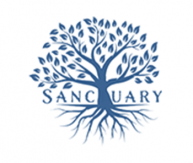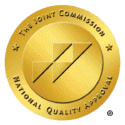Advances in technology have improved many aspects of life. In addiction treatment, technology allows for more treatment options while also reducing treatment barriers. Sanctuary Treatment Center makes use of technology with neurofeedback therapy in Los Angeles, CA.

What is Neurofeedback Therapy?
Neurofeedback is a non-invasive process that helps clients learn more about how their brain functions. As a result, they can learn better ways to manage symptoms of mental health disorders like anxiety and post-traumatic stress disorder (PTSD). Disorders like these often lead to substance abuse as an unhealthy way of coping. Therefore, neurofeedback helps clients learn more about themselves to better cope with stress and anxiety.
During neurofeedback therapy in Los Angeles, CA, electrodes are connected to the client’s scalp to measure brain activity. Then, the client completes activities that stimulate certain parts of the brain. Some of these activities include video games, watching a video, or reading a passage of words. A trained therapist will guide each client through these activities.
As the person completes the activity, the therapist collects data on their brain activity through a machine or computer. After that, the therapist will look at this data to uncover how the client’s brain functions. People with depression, for example, might have low levels of brain activity in specific areas. Therefore, a therapist can help a person strengthen these areas of the brain after obtaining data in neurofeedback.
Does Neurofeedback Therapy Have Any Side Effects?
Since neurofeedback is non-invasive, clients have little to no side effects. In other words, neurofeedback in Los Angeles, California is safe for nearly anyone in treatment. However, it is important to know any possible side effects before beginning any type of treatment.
In a review of the safety of neurofeedback, researchers found that the most commonly reported side effects included “fatigue, pain, sleep problems, and stiffness and muscle spasms. No subjects dropped out of the study due to side effects, however, in a few cases the therapy was temporarily suspended.”
In addition, other side effects included “temporary intensification of previously problematic symptoms such as pressure in the head or headache, dizziness, nausea, tingling sensation, or physical pain associated with injuries.” Still, many of these side effects only occurred during the first few days of treatment. These side effects also go away on their own.
In short, most side effects will occur early in treatment and go away as the sessions continue. While rare, some people could have worsening symptoms of co-occurring mental health disorders after. However, this could also be true of other commonly used treatments, like psychiatric medications.
How Does Neurofeedback in Los Angeles, CA Help with Addiction Treatment?
Neurofeedback helps with addiction treatment by improving neural pathways within the brain. Some mental health and substance use disorders are due to either unusually low or high activity within the brain. For example, attention-deficit/hyperactivity disorder (ADHD) occurs due to low levels of brain activity. On the other hand, PTSD causes a person’s brain to be in a hyperactive mode looking for potential threats.
Some people abuse substances to deal with these symptoms. Stimulants, like cocaine or meth, increase brain activity for those with depression or ADHD. However, others use alcohol or opioids to “quiet” their minds from symptoms of anxiety or PTSD. Thus, the co-occurring mental health issue can be the root cause of addiction.
Our Los Angeles neurofeedback therapy helps a person know what parts of their brain are either under or overactive. After that, the therapist can recommend healthy ways of stimulating or calming these areas. Therefore, a client learns new ways to cope with underlying symptoms without using drugs or alcohol. Some of these coping skills include things like mindfulness or art therapy. These coping skills help repair neural pathways within the brain.
Neurofeedback Therapy in Los Angeles as a Part of Rehab
Neurofeedback can be a vital part of a client’s rehab program. At Sanctuary, we offer neurofeedback therapy during our residential or outpatient treatment programs in Los Angeles, California. Thus, some people can begin treatment during inpatient care and then continue at the outpatient level. In this way, clients get more ways to cope with triggers and stress.
In addition to neurofeedback, we also offer holistic rehab. This type of therapy can help clients restore their brain functioning with more “hands-on” approaches. For example, music therapy stimulates or calms certain parts of the brain. Therefore, after getting data from neurofeedback, a therapist can target therapy to improve brain functioning. As a result, the brain can heal itself and reduce symptoms of both mental health and substance use disorders.
Begin Healing With Neurofeedback Therapy in Los Angeles, CA
Many people in addiction recovery use substances to deal with symptoms of mental health disorders. Some mental health conditions result from problems with brain activity. Sanctuary Treatment Center offers neurofeedback therapy in Los Angeles, California. As part of your treatment plan, neurofeedback gives clients a better idea on these factors and how to improve them.
Contact us today to learn more about neurofeedback and other innovative treatment methods.
All Services
- Acceptance and Commitment Therapy in Los Angeles, CA
- Group Therapy in Los Angeles, CA
- Individual Therapy Program in Los Angeles, California
- TMS Therapy in Los Angeles, California
- Neurofeedback Therapy in Los Angeles, CA
- Holistic Rehab in Los Angeles, California
- Trauma Therapy in Los Angeles, California
- Family Therapy for Addiction in Los Angeles, CA
- Cognitive Behavioral Therapy – CBT – in Los Angeles, California
- DBT Therapy in Los Angeles, CA
- EMDR Therapy in Los Angeles, CA

We Take Insurance!
Sanctuary Treatment Center accepts most private PPO insurance plans, as well as some private HMO plans. Through private insurance plans, individuals and families can access high quality addiction treatment services. If you have questions regarding insurances, please give us a call.

Copyright © 2022 Sanctuary Treatment Center.
